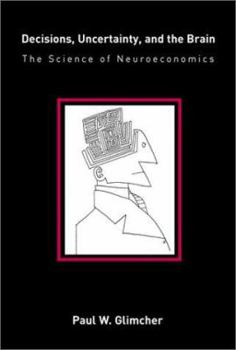Decisions, Uncertainty, and the Brain: The Science of Neuroeconomics
Select Format
Select Condition 
Book Overview
In this work, Paul Glimcher argues that economic theory may provide an alternative to the classical Cartesian model of the brain and behavior. Ren Descartes (1596-1650) believed that all behaviors could be divided into two categories, the simple and the complex. Simple behaviors were those in which a given sensory event gave rise deterministically to an appropriate motor response. Complex behaviors were those in which the relationship between stimulus and response was unpredictable. These behaviors were the product of a process that Descartes called the soul, but that a modern scientist might call cognition or volition.
Format:Hardcover
Language:English
ISBN:0262072440
ISBN13:9780262072441
Release Date:March 2003
Publisher:Bradford Books
Length:375 Pages
Weight:2.00 lbs.
Dimensions:9.5" x 1.0" x 6.5"
Customer Reviews
0 rating





